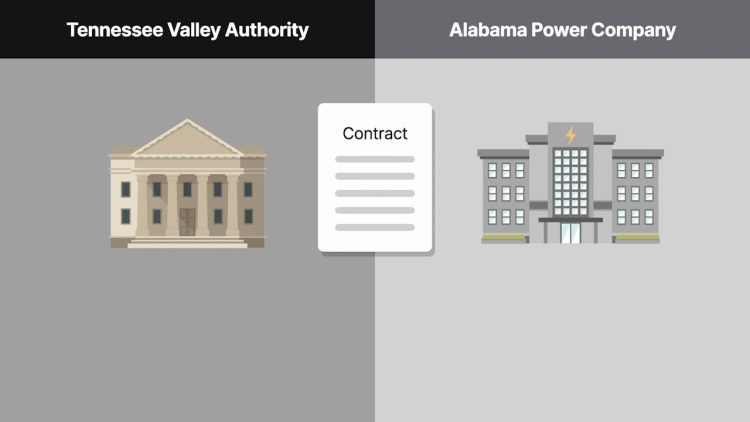Ashwander v. Tennessee Valley Authority
United States Supreme Court
297 U.S. 288 (1936)
- Written by Rose VanHofwegen, JD
Facts
In 1916, Congress authorized building the Wilson Dam to produce nitrates for munitions and improve navigation during the war. In 1933, Congress created the Tennessee Valley Authority (TVA) (defendant), which administered the dam. The TVA contracted to buy property and power-distribution lines around the dam from Alabama Power Company (APC) and to sell APC surplus power generated by the dam. George Ashwander and other APC shareholders (plaintiffs) sued to enjoin the transaction on multiple grounds. Among them, Ashwander argued that the TVA acquiring power lines and selling surplus electricity exceeded the federal government’s constitutional powers. The trial court annulled the contract and enjoined the TVA from buying the lines or selling surplus electricity. The Fifth Circuit reversed, reasoning that Congress’s commerce and wartime powers authorized the dam’s original construction, and the United States owned and could sell the electricity under its disposition powers. On the shareholders’ appeal, the United States Supreme Court reviewed only the issue of whether Congress may distribute and sell electricity. The TVA countered that the shareholders lacked standing, had not raised a genuine case or controversy, and had not shown actual injury.
Rule of Law
Issue
Holding and Reasoning (Hughes, C.J.)
Concurrence (Brandeis, J.)
What to do next…
Here's why 907,000 law students have relied on our case briefs:
- Written by law professors and practitioners, not other law students. 47,100 briefs, keyed to 996 casebooks. Top-notch customer support.
- The right amount of information, includes the facts, issues, rule of law, holding and reasoning, and any concurrences and dissents.
- Access in your classes, works on your mobile and tablet. Massive library of related video lessons and high quality multiple-choice questions.
- Easy to use, uniform format for every case brief. Written in plain English, not in legalese. Our briefs summarize and simplify; they don’t just repeat the court’s language.







